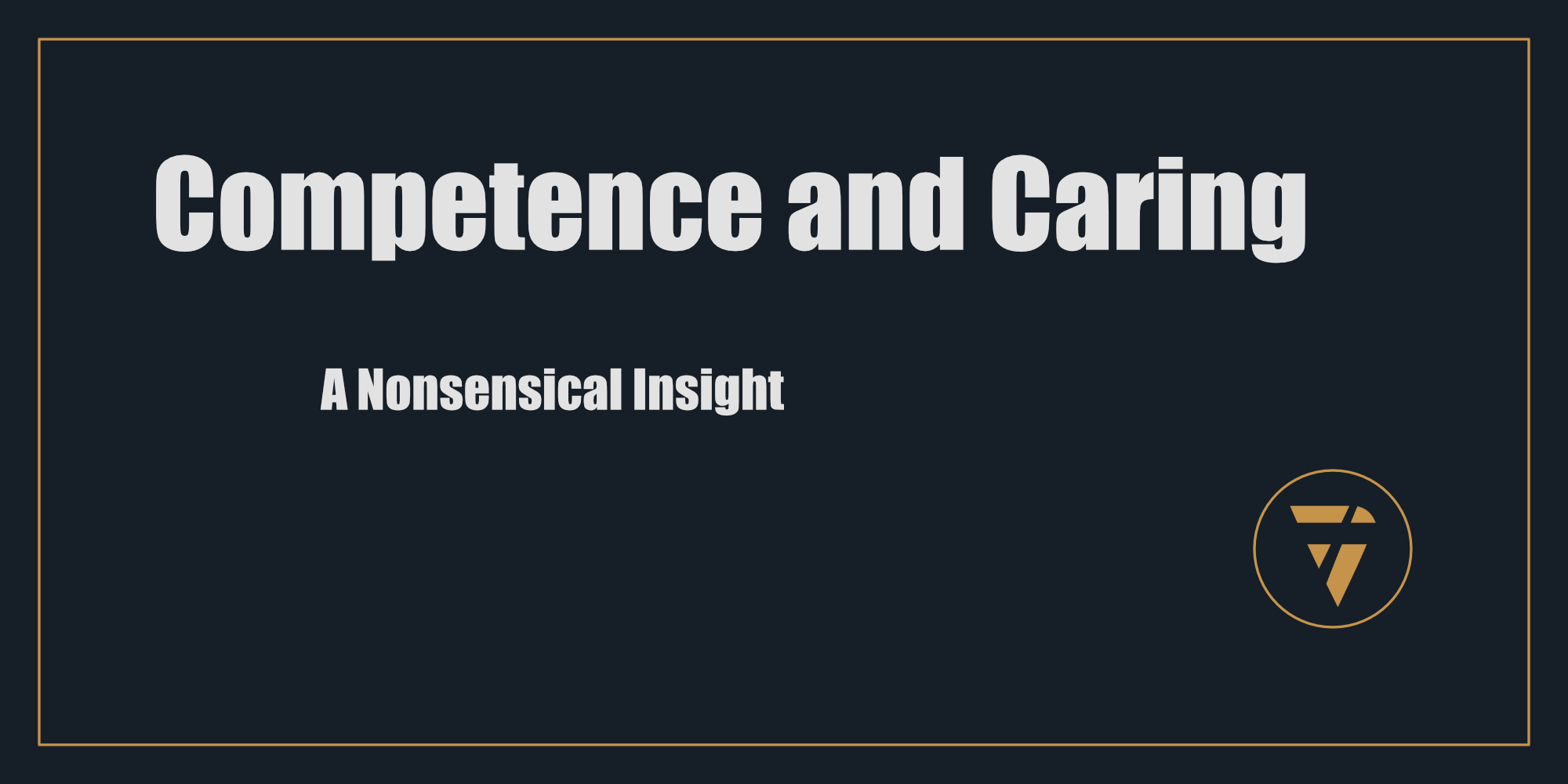Competence and Caring

A Nonsensical Insight
Elon, known for his chaotic stream-of-consciousness pronouncements, might have accidentally stumbled onto something profound. His take on cutting the U.S. budget deficit—reducing a $2 trillion shortfall by half through "competence and caring"—sounds like something between an off-the-cuff TED Talk pitch and a stoner’s revelation at 3 AM.
On the surface, it’s a mess. What does “competence” even mean in a system riddled with inefficiency, special interests, and bureaucratic inertia? And “caring”? That’s laughably vague. But if we assume that Musk, despite his tendency for grandstanding, accidentally touched on something real, let’s dig deeper.
What If Competence Meant Ruthless Optimization?
Forget about basic governmental competence—we know that’s a pipe dream. But what if Musk’s unfiltered thought was pointing to something more radical?
- Automation of Bureaucracy: If a trillion-dollar corporation can run on AI-driven logistics, why does the government still operate like a 1980s office park? The U.S. federal government employs 2.2 million people, many of whom shuffle papers and process redundant tasks. Streamlining operations through AI and automation could eliminate inefficiencies and cut massive costs—but this requires an apolitical approach that no one in power actually wants.
- The Tesla-ification of Public Services: Competence, in Musk-speak, would probably involve cutting government jobs, replacing them with AI, and monetizing whatever’s left. Could you replace layers of bureaucracy with a self-service model that lets people handle licensing, taxes, and social benefits the way they book an Uber? Maybe.
- Brutal Economic Realism: Competence isn’t just about efficiency; it’s about knowing where to spend and where to kill. The U.S. budget bleeds money into failing programs that exist purely because no politician wants to be the one to end them. Competence, then, would mean:
- Ending redundant military contracts (without letting defense lobbyists set the agenda).
- Scrapping dead-end infrastructure projects that take decades but never deliver.
- Forcing Congress to stop playing pork-barrel politics with every spending bill.
Of course, that level of competence is a fantasy. No system willingly optimizes itself out of unnecessary spending. But Musk’s weirdness might be this: what if an outsider—one with no career to protect—actually enforced brutal fiscal discipline?
What If Caring Meant Controlled Burn Instead of Welfare?
“Caring” sounds like a word Musk threw in to sound vaguely humanitarian, but let’s assume it was an accidental truth bomb. What if the real issue with government spending isn’t how much is spent, but how poorly it’s distributed?
- Rethink Welfare as an Investment: Instead of just throwing money at social programs, use ROI-based funding. If a program isn’t producing measurable economic gains (lower crime, higher employment, better education), shut it down and replace it with something better.
- Eliminate Subsidies That Protect the Wrong People: The government subsidizes massive corporations while letting small businesses struggle. "Caring" might mean redirecting that money toward fostering real competition, not just keeping old industries alive.
- Turn Social Programs Into Economic Engines: Caring doesn’t have to mean free money. It could mean public-private partnerships that integrate social programs into the economy—creating more entrepreneurs, better job training, and economic mobility instead of generational dependence.
The Accidental Truth: A System That Works Only If It’s Willing to Kill Itself
Musk’s babbling could be pointing at a government model that is both brutally efficient and intelligently compassionate—but it will never happen because:
- True competence threatens too many powerful people. The current system thrives on inefficiency because it keeps power entrenched.
- Caring is expensive, and no one actually wants to pay for it long-term. The political cycle ensures that no leader will invest in real systemic change because it doesn’t deliver immediate wins.
- Real solutions require making hard choices, and democracy punishes those choices. Any politician who truly enacted Musk’s slip-of-the-tongue model would be unelectable after one term.
Musk’s mistake was assuming that the system wants to be competent and caring. In reality, it thrives on inertia and illusion—neither efficient enough to fix itself nor compassionate enough to justify its failures.
But if you could build a government that actually followed these principles?
You’d have something radical, disruptive, and probably unstable as hell. Which means Musk might have said something that accidentally made sense to him.
Is this what he thinks he's doing?
What's your guess?
This is what I’m working on. Tell me what you think, I enjoy the conversation! Subscribe and follow the work in real time.
Thanks!
B

Competence and caring—Musk said it like a throwaway line, but what if it’s the accidental truth?
Competence: Cut the fat. Automate the bureaucracy. Kill the dead programs.
Caring: Stop funding failure. Invest where it lifts people up.
A government that actually did both wouldn’t survive. Which is why none do.
PS -






